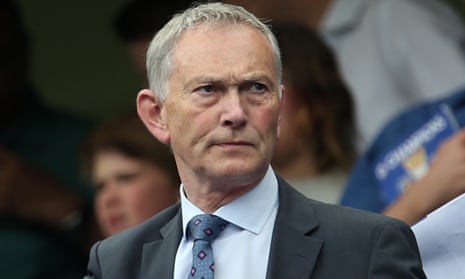Promoted clubs who are relegated after a single year in the Premier League will no longer benefit from full parachute payments from the 2016-17 season. The change in the rules means that the promoted clubs, Bournemouth, Watford and Norwich, will miss out on a year of parachute payments if they go straight back down at the end of next season.
The parachute payments system is also changing so that the money – at least £64m – will be distributed to relegated clubs over three years rather than four. Clubs who go back down after a single year in the Premier League will get only the first two years of payments rather than the full three years.
The new rules will not affect the three clubs most recently relegated from the top flight – Hull, QPR and Burnley. They will receive £64m split over four years – £24m in the first year, then £19.3m, then £9.6m for each of the next two years.
Parachute payments are likely to rise significantly from the 2016-17 season, however, when the new Premier League TV rights deal takes effect. The £5.3bn domestic rights package is 65% higher than the current deal and the overseas rights have still to be agreed.
From the 2016-17 season relegated clubs will receive 55% of the equal share of broadcast revenue paid to Premier League clubs in the first year after relegation, 45% the following year and 20% in year three. Clubs relegated after a single season will receive 55% and 45% over two seasons with the third payment eliminated entirely.
Shortly after the Premier League announced the deal for domestic rights, it revealed that 20% of that would be invested in facilities for grassroots football, solidarity payments to lower-league clubs, encouraging participation, as well as education and support for disadvantaged groups.
Championship clubs currently receive £2.3m a season with League One clubs getting £360,000 a season and fourth-tier clubs being handed £240,000. Under the new arrangements the solidarity payments will be based on a percentage of a third-year parachute payment with Championship sides getting 30%, League One clubs 4.5% and League Two 3%.
Richard Scudamore, the Premier League’s chief executive, said: “The Premier League and our clubs are committed to sharing a significant amount of revenue for the development of football outside of the League.
“The increase in solidarity payments to Football League clubs across seasons 2016-17 to 2018-19 is an important part of that, as is our continued support for community facilities, sports participation programmes and other groups and projects.”
